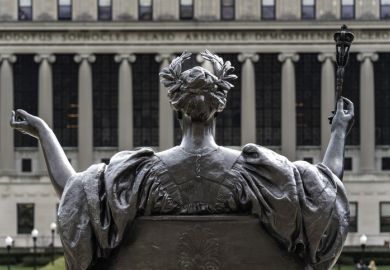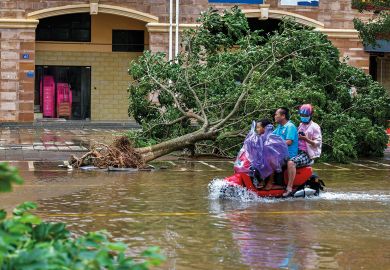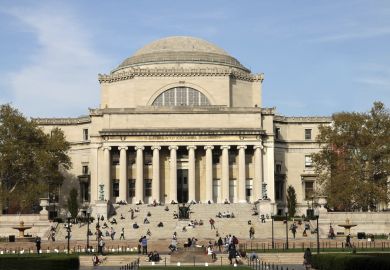Foreign academics who have been forced out of the West Bank have accused the Israeli government of making “mediocrity” a characteristic of Palestinian higher education after a university in the region began the process of legal action.
A lawyer acting on behalf of Birzeit University in the West Bank and two Palestinian human rights groups – Adalah and Al-Haq – sent a letter to Israeli officials demanding that they lift the restrictions preventing international academics employed by the university from staying and working in the region.
It asked Israel to refrain from imposing “arbitrary restrictions on the duration of stay or extension of stay for international academics” and to publish a clear and lawful procedure for issuing entry visas and work permits for foreign scholars in the West Bank, to enable the university to maintain its academic freedom.
Sawsan Zaher, the lawyer working on the case, said “Israel as an occupying power has no authority based on international law to disrupt the academic freedom” of Birzeit University.
She added that international academics at Israeli universities can receive annual work permits, and tenured professors may apply for permanent residency after five years. In contrast, foreign scholars at universities in the Occupied Palestinian Territories can usually receive only a three-month visa, which is not always extended.
Although there have long been visa issues for international academics in the region, figures suggest that an increasing number of scholars are being either refused re-entry after short trips abroad or denied visa renewals.
According to Adalah, no international academics at Birzeit, with the exception of those directly employed by foreign government-sponsored programmes, were issued a visa for the duration of their 2018-19 academic year.
Six full-time foreign scholars contracted for the 2018-19 academic year are without valid visas, while five others, among them a department chair, are overseas with no clear indication of whether they will be able to return, the group said.
The Edward Said National Conservatory of Music, which is an affiliate of the board of trustees of Birzeit University and has five sites, including two in the West Bank and one in Gaza City, reported that eight out of 19 international academics were denied visa extensions or entry in 2018-19, up from four out of 20 in 2017-18.
These reports follow a 2018 study conducted by the Palestinian Ministry of Education that found that 32 out of 64 international lecturers and staff at eight universities across the West Bank had had applications for new visas or visa extensions rejected or had been denied entry to the territory during the previous two years.
Roger Heacock, a US citizen and professor of history at Birzeit, where he has worked for 35 years, was given three weeks’ notice to leave the country by Israeli officials last year after he went abroad on a short trip, even though he holds a valid working visa. He attempted to return again earlier this year but was deported on his way in, he said.
Professor Heacock said the policy “makes sure that mediocrity [is] part of the characteristic of Palestinian civil society” and that education institutions in Palestine are “kept stumbling around in the dark and prevented from becoming great success stories”.
He suggested that the only way the Israeli government would change the policy would be if Israeli universities and academics mobilised against it.
Rana Barakat, an associate professor in the department of history and archaeology at Birzeit and a US citizen who has spent 18 months unsuccessfully pursuing a visa extension, said the “level of obfuscation” in the visa process was a big problem.
“There is not a clear process or a clear procedure for us to know what we have to do in order to travel, in order to return and in order to sustain ourselves in our place of work,” she said.
Dr Barakat, who has worked at the university since 2007, left the country in January 2019 to take up a one-term visiting professor fellowship at Columbia University. Now she is anxious that she will not be allowed to re-enter the West Bank in time for the 2019-20 academic year.
“I received a teaching fellowship at a top-tier university, and I didn’t even have the capacity to feel joy about it because it became an existential crisis immediately: should I take this? Because if I leave I don’t know if I can come back,” she said.
“The point is to make life as difficult as possible for us in individual cases…and then the larger scheme it seems is…a process of marginalising higher education.”
The Israel Ministry of Foreign Affairs did not provide a comment.
POSTSCRIPT:
Print headline: Palestinian university fights Israeli visa curbs on scholars
Register to continue
Why register?
- Registration is free and only takes a moment
- Once registered, you can read 3 articles a month
- Sign up for our newsletter
Subscribe
Or subscribe for unlimited access to:
- Unlimited access to news, views, insights & reviews
- Digital editions
- Digital access to THE’s university and college rankings analysis
Already registered or a current subscriber? Login








